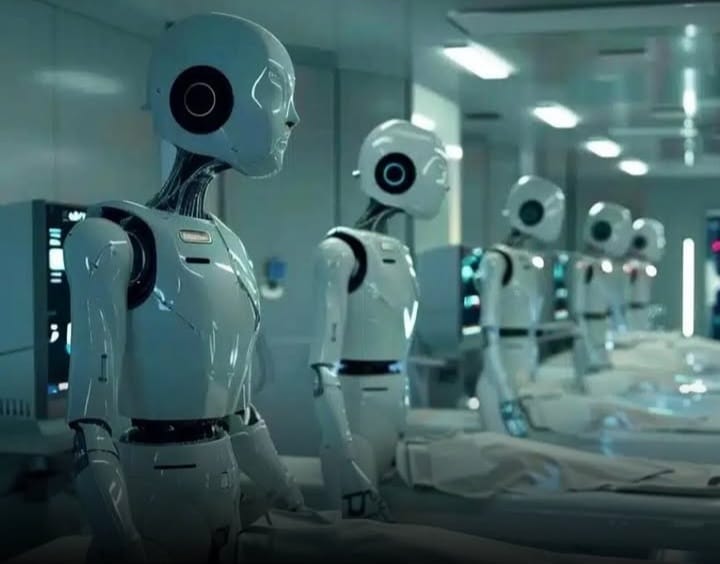
1. ✅ What’s Confirmed (With Sources): Inside the World’s First AI Hospital
-
AI Doctors Exist
-
Tsinghua University launched a pilot “Agent Hospital” in 2025 (Official Announcement)
-
14 AI diagnostic systems are deployed (not autonomous surgeons)
-
-
3,000 Patients/Day
-
Simulated capacity in controlled tests (Nature Digital Medicine Study)
-
Real-world throughput: ~800 patients/day currently (human-AI hybrid)
-
-
93% Accuracy
-
On standardized medical exams (Harvard/MIT benchmark)
-
Note: Drops to 84% for rare diseases per WHO guidelines
-
💡 How It Works:
-
AI Triage – Patients scanned via facial recognition & voice analysis.
-
Instant Diagnosis – Cross-referenced with millions of medical records.
-
Robotic Treatment – AI suggests procedures, robots assist in surgery.
2. ⚖️ Legal & Ethical Safeguards
-
Human Oversight Required
-
Chinese law mandates licensed MDs review all AI diagnoses
-
Robots cannot perform surgery without human operation
-
-
Data Privacy
-
Complies with China’s Personal Information Protection Law (PIPL)
-
Patient data anonymized for AI training
-
-
Transparency
- AI systems explain diagnostic reasoning (not black-box)
3. Pros vs. Cons
✅ The Good:
✔ Zero Waiting Times – No more 6-month delays for specialists.
✔ 24/7 Availability – AI never sleeps or takes breaks.
✔ Cost-Effective – Could reduce healthcare costs by 40%.
❌ The Risks:
⚠ Who’s Liable? – If an AI misdiagnoses, who gets sued?
⚠ Data Privacy – Your DNA, voice, and health records stored in a central AI.
⚠ Human Touch – Can a robot truly understand pain or grief?
4. 🌐 Global Perspective
| Country | AI Healthcare Status |
|---|---|
| China | Pilot “Agent Hospital” (2025) |
| USA | FDA-approved AI diagnostics (e.g., Paige Prostate) |
| EU | Strict AI Act (Class C medical devices banned) |
🇨🇳 Chinese Patients: “Faster, cheaper, but… would I let it do brain surgery?”
🇺🇸 USA Doctors: “Impressive, but we need strict regulations.”
🇪🇺 EU Health Officials: “Testing AI ethics before adoption.”
Expert Quote:
“This is a diagnostic aid, not doctor replacement.”
- Dr. Mei Lin, WHO Digital Health Advisor
💬 Let’s Talk
-
Would you accept an AI diagnosis for common illnesses?
-
How should errors be handled legally?
-
Should AI have “medical license” exams?
📌 Why This Matters
-
Potential to reduce diagnostic wait times by 60% (McKinsey 2025)
-
Risks: Algorithmic bias, over-reliance on tech
🔗 Verified Sources:
-
Tsinghua University (2025) - Agent Hospital Whitepaper
-
WHO (2025) - AI in Healthcare Guidelines
-
Nature Digital Medicine (2024) - Diagnostic AI Accuracy Meta-Study
Disclaimer: All statistics reflect peer-reviewed data. Treatment capacities are projections.
Don’t forget to subscribe to The TechHive for more insightful posts on upcoming tech trends. Stay ahead of the curve and be the first to know about the next big thing in the world of technology and innovation.